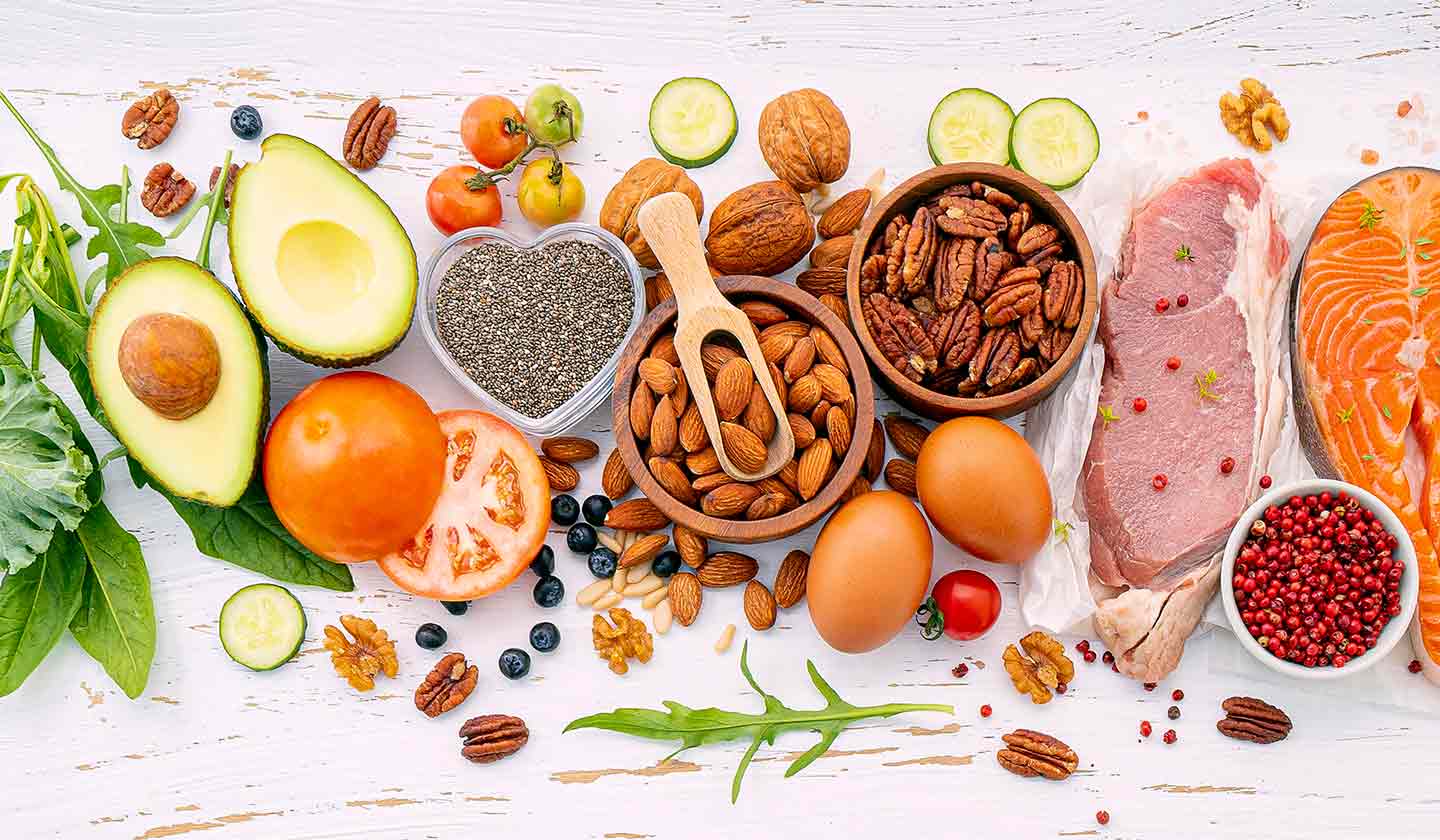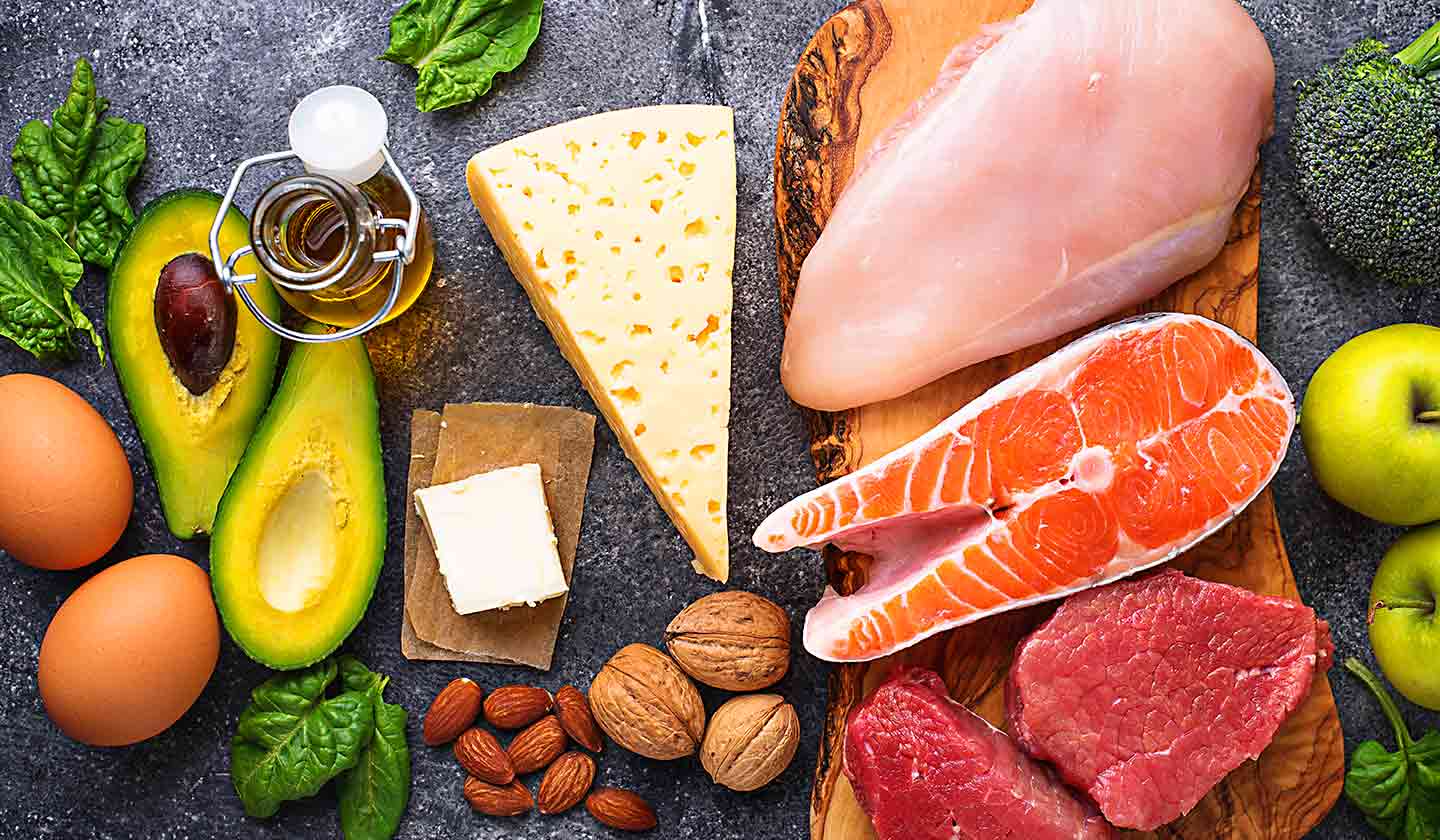Food
The importance of losing weight - Part II

Nowadays, there are various types of diets, from reduced fat and/or reduced carbohydrate diets or low carb as they are called, ketogenic diet, paleo diet, etc.
The type of diet that may work for one person, may not work for another. This is due to individual factors, one of them being the ease of adherence to the diet. For a diet to be feasible to stick to, it must not only be tailored to individual needs, but also be a diet that is easy for the person to stick to, thus allowing it to be maintained and successful.
One of the points that most leads to a decrease in adherence and giving up is the dietary inadequacy, because if the diet is not adequate for the person (needs, objectives and personal tastes) the difficulty of maintaining it in the long term becomes greater as well as the risk of giving up.
Among the diets that have been appearing and gaining more attention in the last few years we have, for example:
- Dukan diet;
- Ketogenic diet
- Paleo diet;
- Soup diet;

Dukan Diet
This diet, created by the French doctor Dr. Pierre Dukan, is a diet in phases, with a more restricted initial phase.
Consisting of 4 stages, the 1st stage of the Dukan Diet is a period in which the diet is hyper-proteic, i.e., it is mainly based on proteins, eliminating the foods which supply carbohydrates and sugars.
Throughout the 4 phases, more and more foods are introduced, and the duration of the phases depends on the person's weight goal.
As it is a protein-based diet, especially in the 1st phase, it is not recommended for all people, so it is important to keep a nutritional accompaniment and ensure that there are no contraindications for this diet.

Ketogenic Diet
This is a diet in which the intake of carbohydrates is reduced, between 10 and 50g per day, and the intake of lipids (fat) is increased, more than 60% of daily energy needs.
The ketogenic diet aims to induce a metabolic condition, ketosis, in which there is the production of ketone bodies by the liver, through the expenditure and decrease of glycogen reserves (glycogen reserves of the muscle and liver).
There are some risks and contraindications for this diet, and it should not be started or followed without medical and nutritional monitoring.

Paleo Diet
The concept of the paleo diet emerged in the 20th century and has been gaining more followers in recent years.
This diet is based on the inclusion of foods available to man in the Paleolithic period, such as vegetables, seeds, tubers, fruit, fish and some meat.
Nowadays the Paleo diet is more comprehensive, including other types of food such as potatoes, dairy products and pulses.

Soup diet
This last diet has appeared more recently and is based on soup, which is then complemented with other foods. In this diet there is the exclusion/reduction of carbohydrates, which are then gradually added.
In the soup diet, if the person has any health condition or takes medication, it is recommended to consult a doctor before going ahead with it, and this diet is done during a maximum period of 7 days.

Considerations on types of diets
There is not a best type of diet or the one that will bring you faster results, but there are people and different diets, so the ideal diet is the one that adapts to the person, that is viable and sustainable to maintain in the long term and, that allows not only to obtain results, but also to re-educate the diet.
If you want to lose weight or you are trying to lose weight, look for nutritional accompaniment, by a nutritionist, in order to guarantee that the diet you are eating is adequate to you, to your needs and to your objective, thus avoiding yo-yo diets or diets that may bring some risk in the long term, such as nutritional deficiencies.

Risks of fast diets
Losing weight in a fast way couldn't sound better to the ears of those who want to lose weight. But how long did it take for the weight to go from being normal to excessive? Barring a few specific situations, weight gain is a relatively slow and gradual process. And in the same way that you do not put on weight overnight, you cannot lose weight overnight. Be wary of and understand the great risks of promises like "lose 10Kg in 10 days" or "10 Kg in one week" quickly and safely.
Sudden weight loss requires too radical dietary changes that lead to the deprivation of important nutrients for the regulation of the organism. That is why it is not rare that people who start a diet to lose weight in a short period of time complain of fatigue, tiredness, bad mood and even palpitations (cardiac arrhythmias). Excessively restrictive diets can seriously compromise cardiac and renal function and even lead to bankruptcy. Furthermore, they can hardly be maintained for a long time and consequently the yo-yo phenomenon occurs, that is, constant fluctuations in weight that can be as dangerous or even more dangerous to health than the initial excess weight.
Therefore, a well-planned diet, appropriate to individual needs, tastes and objectives is essential in order to allow not only a healthy and balanced weight loss, avoiding the yo-yo phenomenon, but also to allow maintenance of the weight lost in the long term.
Nutrition and healthy living
Sometimes we cannot change the course of life. However, life is essentially the result of our attitudes and behaviour. We are, therefore, the result of our experiences.
It is imperative that we live it intensely and with vitality, so that all our attitudes / behaviours reflect positively on our life. We should make it desirable and stimulating by adopting an assertive, active and participatory attitude towards it.
A large part of the situations that medicine helps to solve could easily be overcome if the adoption of a healthy lifestyle were a current practice in the individual's life.
Changing certain practices towards a healthier life is imperative. Healthy living is not at all a metric that we have to follow to the letter to achieve a more satisfying life. It is not about rigidly following an inflexible, distressing and even limiting plan, because life should be lived intensely and in a way that gives us feelings of pleasure and satisfaction. However, we must be fully aware that our attitudes towards life significantly alter our health and consequently our quality of life.
A proper diet, avoiding obesity, together with physical exercise, avoiding a sedentary lifestyle, are two essential pillars towards a healthy life.

Nutrition and quality of life
Life is made up of choices that must be made in awareness. Finding a balance between the pros and cons of your personal tastes, aiming to achieve a healthier life and consequently a better quality of life, is an important goal in the life of all of us.
How many of us have experienced the discomfort caused by a simple backache, shoulder pain, knee pain, etc. Or felt the discomfort caused by simple colds or repetitive flu, often caused by weaknesses in our immune system. Not to mention much more harmful pathologies with a high risk of death. We could give many examples, however, we all realise that even in their milder forms, illnesses drastically reduce our quality of life.
In short, we would say that it is not possible to obtain a satisfactory quality of life without adopting healthy life habits, where an adequate diet is fundamental.
Sources
Health and Wellness Blog
Também lhe poderá interessar
Food
Balanced diet, healthy body
Food






